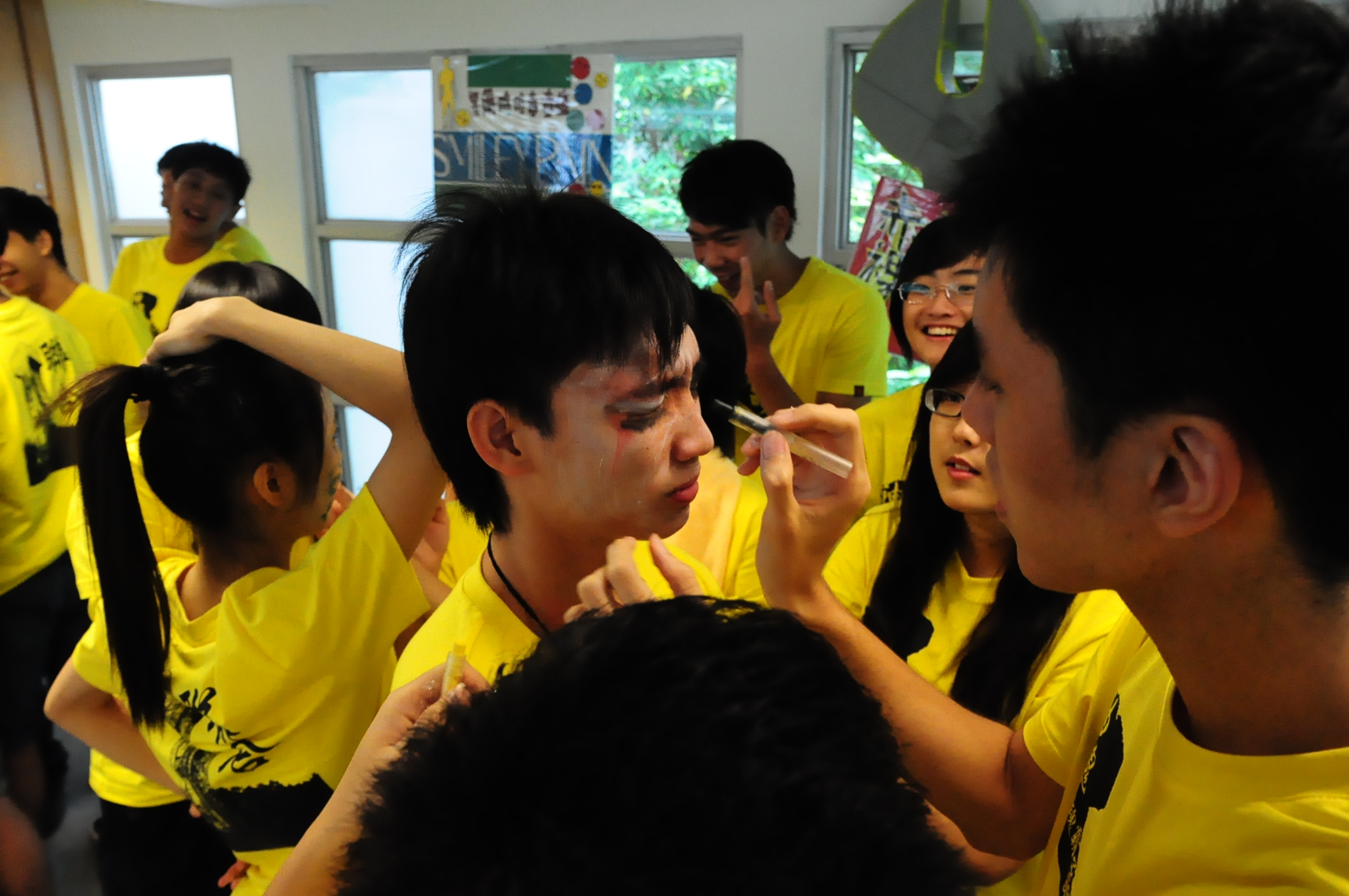Exploring the media’s fascination with O’camp. Uncovering reasons behind “offensive” activities.
By Charlie Leung and Jennifer Xu
Another summer, another batch of racy headlines about activities related to orientation camps or o’camps of Hong Kong’s universities. From Apple Daily, there is “Stocking Seductions of Chinese University Male Students”, and from its biggest rival, Oriental Daily, there is “Obscene Short Videos Emerge from O’camps Again”.
O’camps are arranged by students for students to introduce freshmen to university life, help them settle in and to make friends. Since the infamous “New Asia Sauna” incident in 2002, when students from Shaw College in the Chinese University of Hong Kong (CUHK) displayed banners suggesting that female students from New Asia College were sex workers, there has been intense media scrutiny of o’camp games and activities.
The coverage is overwhelmingly negative and focuses on what are considered to be inappropriate and offensive games which challenge prevailing social mores. But is it true that the students who organise and take part in these activities are crossing a line?
Lee Ka-yiu, a group leader, common known as Jo ma (group mum), of this year’s orientation camp in the Faculty of Engineering at CUHK describes a game which some might find inappropriate. A boy would sit in front of a girl with a biscuit stick in his mouth. The girl was then asked to do sit-ups in order to reach and take a bite out of the biscuit stick. The team to end up with the shortest biscuit would win.
“Some teams literarily kissed during the game. I was shocked and felt embarrassed about it, but they [the kissing team] are perfectly fine with it,” Lee exclaims.
There were other similar games, for instance where a boy and a girl were asked to “share” an apple which was hung from above them, without using their hands.
“Sometimes they [students] don’t even know they have crossed the line,” notes Lee. It is a matter of debate whether such games are inappropriate but they are just one example of the kinds of activities some people might find offensive. In August, Face magazine reported on violent games during one of the o’camps at City University of Hong Kong.
According to the report, freshmen were forced to participate in pillow fights during which girls sat on the backs of boys and fought against each other.
Ryan Cheung, who participated in the orientation camp at Hong Kong Polytechnic University (PolyU) in 2008, witnessed his friend being slapped about with pillows and crying for 15 minutes afterwards.
Cheung explains it was part of a game they played, in which they were blindfolded and required to answer personal questions, such as: do you have a girlfriend? Have you ever watched porn? If the participant failed to answer, he/she would be hit with a pillow.
Cheung understands the purpose of the game was to encourage students to accept a new culture, but he says not everyone is fine with this kind of “special education”.
Dr Edwin Chan Ho-yin, the chairman of the Joint Committee on New Student Orientation (JCNSO) at CUHK, admits it is difficult to ask the student organisation committees (OCs) to change the types of games organized in the camp, as members of the OC enjoyed these same games when they were freshmen. It is hard for them to understand why others might not want to participate in some of the games.
Dr Chan says the JCNSO, which is comprised of faculty and student representatives, has received feedback from freshmen, which shows that over half of the students feel comfortable with the activities, but that some found the o’camp activities meaningless and unacceptable.











































